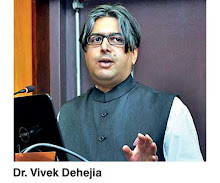But back to the point at hand. Spitzer was on Fareed Zakaria's excellent new CNN program, GPS, earlier today, commenting on the current controvery over AIG's executive bonuses, amongst other things, and legal avenues that the US government might pursue in recovering those monies for the American taxpayer. The whole interview is well worth watching, and, if you're reading this today, Sunday, March 22, you can catch it again at 5 pm Eastern time this afternoon. In due course, it will no doubt be archived on the show's website. Here is the link:
Interesting and topical stuff, but much the most interesting part of his discussion was on the very subject of the market and the state, on which I've been opining recently. Spitzer framed the debate in an interesting way, by saying (and here I paraphrase) that we had during the last twenty years was libertarianism masquerading as capitalism, and, if we're not careful, what we're likely to get in the next twenty is rank populism instead, that, if not nipped in the bud, will threaten the system of capitalism itself. This is a more provocative and pungent way of saying what I'd put more prosaically, that we might be about to witness another pendulum swing, from the balance tipping from the market back to the state. Or, to be more precise, this would involve a putative move from an insufficiently regulated market to an over-regulated one. On this fundamental point, I believe that Spitzer's framing of it is accurate, and, alas, his predictions may once again prove to be prescient.

No comments:
Post a Comment